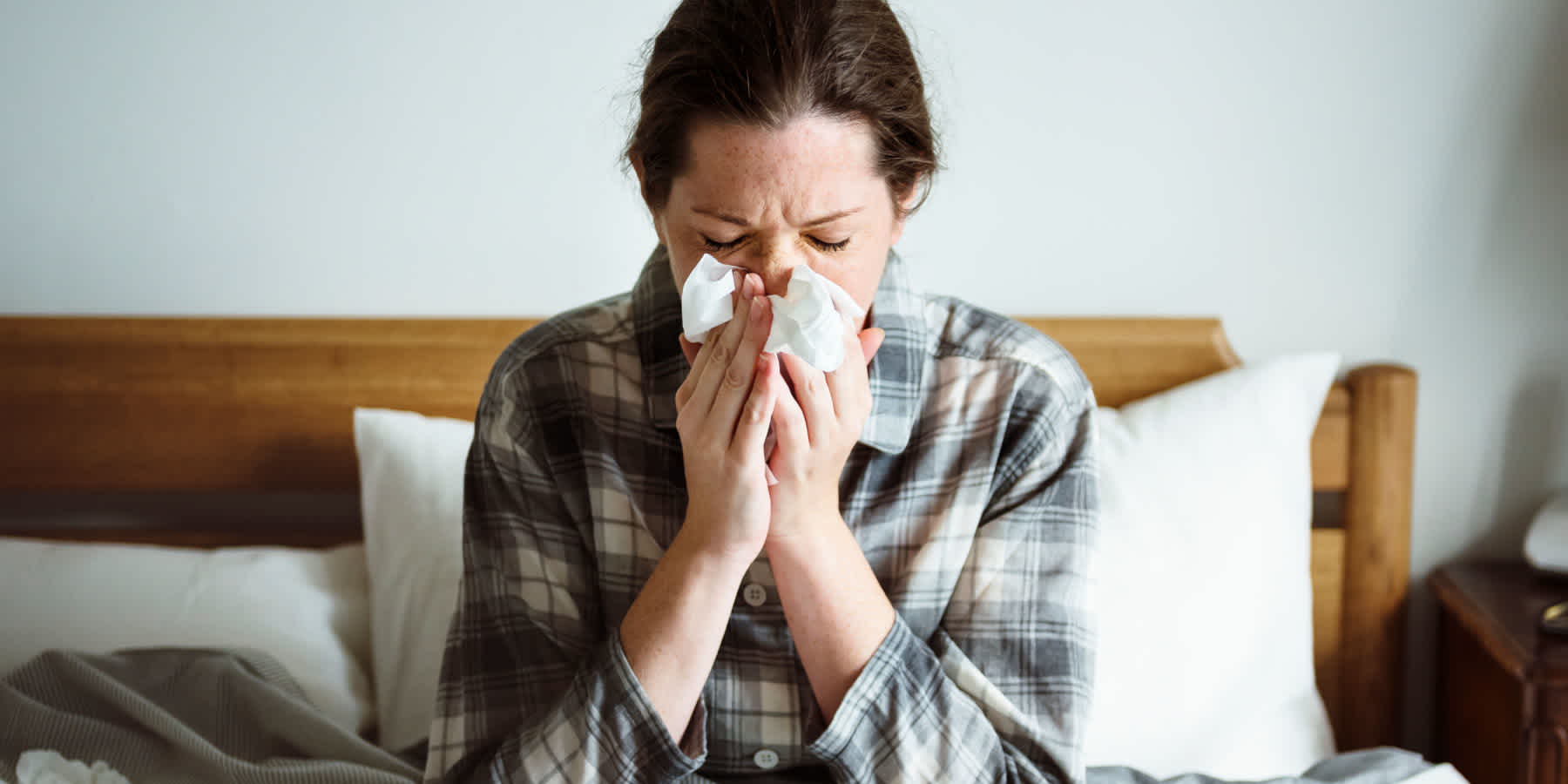
Flu season is the worst it’s been in over a decade — here’s what to know
Medically reviewed on December 27, 2022 by Morgan Spicer, Medical Communications Manager. To give you technically accurate, evidence-based information, content published on the Everlywell blog is reviewed by credentialed professionals with expertise in medical and bioscience fields.
If everyone you know is sick right now, it’s not just you: The U.S. has been experiencing a harsher flu season than we've seen in years. And while the CDC reports that seasonal influenza activity remains high but continues to decline in most areas, experts worry that regional waves of respiratory illness may continue to stress health systems as the winter progresses.
The CDC estimates that there have already been at least 22 million illnesses and 230,000 hospitalizations so far this flu season. In addition to the flu, other respiratory viruses that cause symptoms similar to that of the flu are occuring in larger numbers. These additional viruses include respiratory syncytial virus, or (RSV), a respiratory illness that often affects both young children and those over 65 years, and coronaviruses, which are the same family of viruses that includes COVID-19."
Because the CDC recommends getting an annual flu vaccine is the best way to protect against flu, this year’s low vaccination rates are cause for concern. As of December 9, 2022, data showed that only 26% of American adults and 42.5% of children had gotten a flu shot.
In addition to vaccines, the CDC suggests the following precautions to help protect against the flu:
- Avoid close contact
Avoid close contact with people who are sick. When you are sick, keep your distance from others to protect them from getting sick.[3]
- Stay home when you are sick.
If possible, stay home from work, school, and errands when you are sick. This will help prevent spreading your illness to others.[3]
- Cover your mouth and nose.
Cover your mouth and nose with a tissue when coughing or sneezing. It may prevent those around you from getting sick. Flu viruses spread mainly by droplets made when people with flu cough, sneeze or talk.[3]
- Clean your hands.
Washing your hands often will help protect you from germs. If soap and water are not available, use an alcohol-based hand rub.[3]
- Avoid touching your eyes, nose or mouth.
Germs can be spread when a person touches something that is contaminated with germs and then touches his or her eyes, nose, or mouth.[3]
If you think you have symptoms that you believe are flu-related and would like to speak with a healthcare provider, Everlywell may be able to help. Our Virtual Care Visits make it easy to schedule fast telehealth visits with a clinician to address your symptoms, and get the right tests and prescriptions.
Related content:
- Is it a cold, flu, or COVID-19? An expert explains the differences of viral infections
- What is the strongest medicine for the flu?
- 25 New Year's health resolutions for your healthiest year yet
- What is the best treatment for flu at home?
References: 1. Weekly U.S. Influenza Surveillance Report. CDC. URL. Accessed January 10, 2023. 2. The National Respiratory and Enteric Virus Surveillance System (NREVSS). CDC. URL. Accessed January 10, 2023. 3. Healthy Habits to Help Protect Against Flu. CDC. URL. Accessed January 10, 2023.